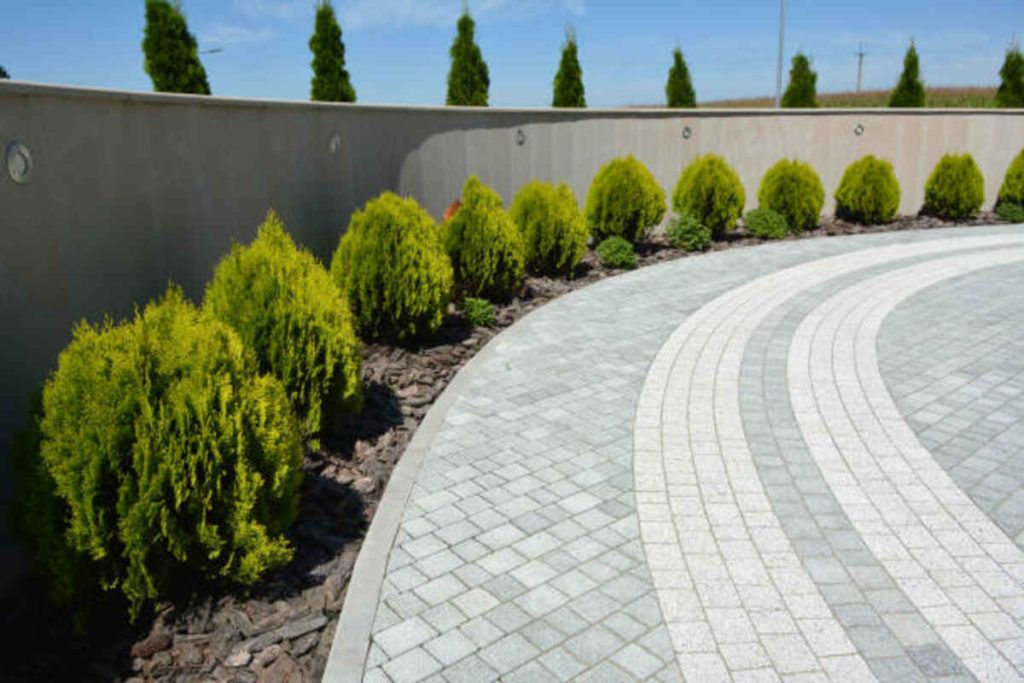Brick pavers add a classic and traditional aesthetic to walkways, front entries, patios, and driveways. Plus, they’re easy to maintain – broken pavers can be replaced! Find the best Asphalt Paving in Hayward.
Bricks come in only a select few colors, although their hue can vary based on how they’re kiln-fired. Most bricks are manufactured in rectangular shapes, limiting laying patterns to running bond, herringbone, and basket weave techniques.
They’re strong
Bricks are made from natural materials that can be recycled and reused, making them an eco-friendly alternative to concrete pavements. Their colors won’t fade under sunlight exposure, and their stain resistance makes them resistant to damage or cracking; replacement can quickly be done.
Brick paver strength depends on the clay used and its subsequent firing process in a kiln, though generally speaking, bricks tend to have higher PSI ratings than concrete. Although bricks tend to outshout concrete when it comes to PSI ratings, they’re susceptible to cracking under freeze/thaw conditions—installation type also plays a factor—so depending on your climate needs, Koch Kut can recommend products best suited to them.
Edge treatment should also be considered when choosing brick pavers. Square-edged pavers tend to chip more during installation, while beveled edges reduce chipping risk. For a historical feel, choose herringbone patterns or basket weave layouts, which create strong vertical lines to lengthen your space visually.
If you’re planning a brick driveway or patio project, Koch Kut is here to provide a free estimate. Our experienced team is happy to discuss all of your options before helping you choose a paver that perfectly complements your landscaping design.
They’re durable
Bricks are an ideal material choice for high-traffic areas like driveways and walkways due to their durability and long lifespan. Furthermore, their vast array of textures, shapes, and colors makes them suitable for many different landscape designs.
Clay or concrete pavers are easy to keep clean and in good condition with regular sweeping, cleaning with specially formulated cleaning solutions designed for pavers, and then rinsing off with water from a garden hose. As always, be sure to test any cleaner in an inconspicuous area first to avoid the discoloration of bricks!
If you have an infestation of weeds, spray your bricks with an eco-friendly weed killer to stop their growth. Also, consider sealing them once every two or three years to protect them from mold and mildew growth while simultaneously helping keep sand from eroding away between pavers.
Your bricks’ hue depends on their construction materials (shale and clay) and how they were fired in a kiln; quick bursts of heat tend to produce deep red tones, while longer flashes of heat produce softer mauves and grays. Furthermore, how you mold and press them affects their hue—more uniform shapes generally produce lighter tones with more textural surfaces.
They’re easy to maintain
Brick pavers make an excellent choice for patios and walkways as they require little upkeep – simply a regular cleaning regimen should keep them looking their best while performing efficiently.
Start by sweeping away dirt, leaves, and debris from the surface of your pavers. Next, spray them down with water from a garden hose using low pressure; beware of using high-pressure nozzles, as this could ruin the sand that keeps the pavers together and helps them from shifting or cracking.
Brick cleaning solutions range from water and mild dish soap, to more targeted cleaners such as white vinegar mixed with water for mildew or mold that has developed, commercial biocide treatments are also effective against such stains.
If weeds have taken root between your brick pavers, pulling them by hand or applying an organic herbicide may be your best approach. Weed sprays also come in handy. Brick pavers can also be moved easily to access underground pipes or cables in your landscape; unlike concrete/asphalt pavements, they will not crack under heavy vehicle loads and resist deicing salt damage, making them perfect for areas frequented by cars and trucks.
They’re beautiful
Brick pavers make an attractive choice for driveways, patios, walkways, and other outdoor spaces, yet they require ongoing care and maintenance to remain at their best and last as long as possible. Sweeping regularly will help prevent dirt accumulation as well as organic matter that leads to weed growth or moss formation – it also serves to avoid staining caused by runoff water from rainstorms! To maintain brick pavers properly and prolong their life expectancy.
For the safest brick paver cleaning, combine warm water and a mild detergent like dish soap. You can find such cleaners in most home improvement stores. For deeper cleaning, a pressure washer may also be useful; just be sure you hire someone experienced enough to use one without damaging bricks!
Sealant applications are another great way to keep brick pavers looking their best and protect the surface against oil spills, vehicle and sprinkler rust, gum adhesion, and other contaminants that could discolor them. Resealing brick pavers every two to three years should do just the trick.
Brick pavers are an ideal addition to any home, as they are easy to maintain while adding elegance and charm. Plus, they’re environmentally friendly – lasting generations!

